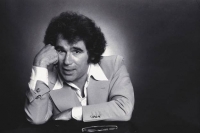Piano Sheet Music
 "Use the talents you possess, for the woods would be very silent if no birds sang except the best." Henry Van Dyke
"Use the talents you possess, for the woods would be very silent if no birds sang except the best." Henry Van Dyke
Ferenc Erkel

Ferenc Erkel (Hungarian: Erkel Ferenc Hungarian pronunciation: , German: Franz Erkel; November 7, 1810 – June 15, 1893) was a Hungarian composer, conductor and pianist. He was the father of Hungarian grand opera, written mainly on historical themes, which are still often performed in Hungary. He also composed the music of "Himnusz", the national anthem of Hungary, which was adopted in 1844. He died in Budapest.
Wim Zwaag

Wim Zwaag (1960), is a Dutch composer who has a wide range of compositions reaching from violin concertos to symphonies, songs and piano-solo works (as well as piano concerto's). Wim has a style which can be called post-romanticism in which the tonal structure of the Romantic era is adjusted with the harmonic influences of the 20th and 21st century.
Jules Demersseman
Jules Auguste Demersseman (9 January 1833 – 1 December 1866) was a French flautist and composer.Demersseman was born in Hondschoote, Département Nord, France, near the Belgian border. At 11, he was a student of Jean-Louis Tulou at the Conservatoire de Paris. He won the first prize there at the age of twelve and quickly became famous as a virtuoso. However, he was not considered for a professorship, since he, influenced by his teacher, did not favor the modern type of transverse flute designed by Theobald Böhm which had been introduced into France in the meantime. Demersseman was only 33 when he died in Paris, presumably from tuberculosis.
Cristóbal Oudrid
Cristóbal Oudrid y Segura was a Spanish pianist, conductor, and composer. He is noted for his many contributions to the formation and development of the zarzuela genre in Spain during the second half of the 19th century.
Georges Bizet

Georges Bizet (25 October 1838 – 3 June 1875) was a French composer and pianist of the Romantic era. He is best known for the opera Carmen.
Bizet was born at 26 rue de la Tour d'Auvergne in the 9th arrondissement of Paris in 1838. He was registered with the legal name Alexandre César Léopold Bizet, but he was baptised on 16 March 1840 with the first name Georges, and he was always known thereafter as Georges Bizet. His father Adolphe Armand Bizet (1810-86) was an amateur singer and composer, and his mother, Aimée Léopoldine Joséphine née Delsarte (1814-61), was the sister of the famous singing teacher François Delsarte.
He entered the Paris Conservatory of Music on 9 October 1848, a fortnight before his tenth birthday. His teachers there were Pierre Zimmermann (fugue and counterpoint; often assisted by his son-in-law Charles Gounod), Antoine François Marmontel (piano), François Benoist (organ) and, on Zimmermann's death, Fromental Halévy, whose daughter he himself later married. He won first prizes for organ and fugue in 1855 and completed his earliest compositions.
His first symphony, the Symphony in C, was written in November 1855, when he was seventeen, evidently as a student assignment. It was unknown to the world until 1933, when it was discovered in the archives of the Paris Conservatory library. Upon its first performance in 1935, it was immediately hailed as a junior masterwork and a welcome addition to the early Romantic period repertoire. The symphony bears a stylistic resemblance to the first symphony of Gounod, first played earlier in the same year, and which Bizet had arranged for two pianos although present-day listeners may discern a similarity to music of Franz Schubert, whose work was little known in France at the time the symphony was written.
In 1857, a setting of the one-act operetta Le docteur Miracle won him a share in a prize offered by Jacques Offenbach. He also won the music composition scholarship of the Prix de Rome, the conditions of which required him to study in Rome for three years. There, his talent developed as he wrote such works as the opera buffa Don Procopio (1858-59). There he also composed his only major sacred work, Te Deum (1858), which he submitted to the Prix Rodrigues competition, a contest for Prix de Rome winners only. Bizet failed to win the Prix Rodrigues, and the Te Deum score remained unpublished until 1971. He made two attempts to write another symphony in 1859, but destroyed the manuscripts in December of that year. Apart from this period in Rome, Bizet lived in the Paris area all his life.
Shortly after leaving Rome in July 1860, but while still touring in Italy, he had the idea of writing a symphony in which each of the four movements would be a musical evocation of a different Italian city – Rome, Venice, Florence and Naples. On hearing of his mother's serious illness he cut short his Italian travels and returned to Paris in September 1860; she died a year later. The Scherzo of the symphony was completed by November 1861, but it was not until 1866 that the first version of the whole symphony was written. He subjected it to a number of revisions through to 1871, but died before ever producing what he considered the definitive version. For this reason, the work is sometimes described as "unfinished", but this is an inaccurate description as it was fully scored. It was published in 1880 as the Roma Symphony.
Bizet was born at 26 rue de la Tour d'Auvergne in the 9th arrondissement of Paris in 1838. He was registered with the legal name Alexandre César Léopold Bizet, but he was baptised on 16 March 1840 with the first name Georges, and he was always known thereafter as Georges Bizet. His father Adolphe Armand Bizet (1810-86) was an amateur singer and composer, and his mother, Aimée Léopoldine Joséphine née Delsarte (1814-61), was the sister of the famous singing teacher François Delsarte.
He entered the Paris Conservatory of Music on 9 October 1848, a fortnight before his tenth birthday. His teachers there were Pierre Zimmermann (fugue and counterpoint; often assisted by his son-in-law Charles Gounod), Antoine François Marmontel (piano), François Benoist (organ) and, on Zimmermann's death, Fromental Halévy, whose daughter he himself later married. He won first prizes for organ and fugue in 1855 and completed his earliest compositions.
His first symphony, the Symphony in C, was written in November 1855, when he was seventeen, evidently as a student assignment. It was unknown to the world until 1933, when it was discovered in the archives of the Paris Conservatory library. Upon its first performance in 1935, it was immediately hailed as a junior masterwork and a welcome addition to the early Romantic period repertoire. The symphony bears a stylistic resemblance to the first symphony of Gounod, first played earlier in the same year, and which Bizet had arranged for two pianos although present-day listeners may discern a similarity to music of Franz Schubert, whose work was little known in France at the time the symphony was written.
In 1857, a setting of the one-act operetta Le docteur Miracle won him a share in a prize offered by Jacques Offenbach. He also won the music composition scholarship of the Prix de Rome, the conditions of which required him to study in Rome for three years. There, his talent developed as he wrote such works as the opera buffa Don Procopio (1858-59). There he also composed his only major sacred work, Te Deum (1858), which he submitted to the Prix Rodrigues competition, a contest for Prix de Rome winners only. Bizet failed to win the Prix Rodrigues, and the Te Deum score remained unpublished until 1971. He made two attempts to write another symphony in 1859, but destroyed the manuscripts in December of that year. Apart from this period in Rome, Bizet lived in the Paris area all his life.
Shortly after leaving Rome in July 1860, but while still touring in Italy, he had the idea of writing a symphony in which each of the four movements would be a musical evocation of a different Italian city – Rome, Venice, Florence and Naples. On hearing of his mother's serious illness he cut short his Italian travels and returned to Paris in September 1860; she died a year later. The Scherzo of the symphony was completed by November 1861, but it was not until 1866 that the first version of the whole symphony was written. He subjected it to a number of revisions through to 1871, but died before ever producing what he considered the definitive version. For this reason, the work is sometimes described as "unfinished", but this is an inaccurate description as it was fully scored. It was published in 1880 as the Roma Symphony.
Mozart

Wolfgang Amadeus Mozart, full name Johann Chrysostom Wolfgang Amadeus Mozart (27 January 1756 â 5 December 1791) was a prolific and influential composer of the Classical era. His over 600 compositions include works widely acknowledged as pinnacles of symphonic, concertante, chamber, piano, operatic, and choral music. Mozart is among the most enduringly popular of classical composers, and many of his works are part of the standard concert repertoire.
Mozart's music, like Haydn's, stands as an archetypal example of the Classical style. His works spanned the period during which that style transformed from one exemplified by the style galant to one that began to incorporate some of the contrapuntal complexities of the late Baroque, complexities against which the galant style had been a reaction. Mozart's own stylistic development closely paralleled the development of the classical style as a whole. In addition, he was a versatile composer and wrote in almost every major genre, including symphony, opera, the solo concerto, chamber music including string quartet and string quintet, and the piano sonata. While none of these genres were new, the piano concerto was almost single-handedly developed and popularized by Mozart. He also wrote a great deal of religious music, including masses; and he composed many dances, divertimenti, serenades, and other forms of light entertainment.
The central traits of the classical style can be identified in Mozart's music. Clarity, balance, and transparency are hallmarks of his work.
Mozart's music, like Haydn's, stands as an archetypal example of the Classical style. His works spanned the period during which that style transformed from one exemplified by the style galant to one that began to incorporate some of the contrapuntal complexities of the late Baroque, complexities against which the galant style had been a reaction. Mozart's own stylistic development closely paralleled the development of the classical style as a whole. In addition, he was a versatile composer and wrote in almost every major genre, including symphony, opera, the solo concerto, chamber music including string quartet and string quintet, and the piano sonata. While none of these genres were new, the piano concerto was almost single-handedly developed and popularized by Mozart. He also wrote a great deal of religious music, including masses; and he composed many dances, divertimenti, serenades, and other forms of light entertainment.
The central traits of the classical style can be identified in Mozart's music. Clarity, balance, and transparency are hallmarks of his work.
Antonin Dvorak

Antonín Leopold Dvořák (English pronunciation: /ˈdvɒrʒɑːk/ DVOR-zhahk or /ˈdvɒrʒæk/ DVOR-zhak; Czech: ( listen); September 8, 1841 – May 1, 1904) was a Czech composer of Romantic music, who employed the idioms of the folk music of Moravia and his native Bohemia. His works include operas, symphonic, choral and chamber music. His best-known works include his New World Symphony, the Slavonic Dances, "American" String Quartet, and Cello Concerto in B minor.
Dvořák wrote in a variety of forms: his nine symphonies generally stick to classical models that Beethoven would have recognised, but he also worked in the newly developed symphonic poem form and the influence of Richard Wagner is apparent in some works. Many of his works also show the influence of Czech folk music, both in terms of rhythms and melodic shapes; perhaps the best known examples are the two sets of Slavonic Dances. Dvořák also wrote operas (of which the best known is Rusalka); serenades for string orchestra and wind ensemble; chamber music (including a number of string quartets, and quintets); songs; choral music; and piano music.
Dvořák wrote in a variety of forms: his nine symphonies generally stick to classical models that Beethoven would have recognised, but he also worked in the newly developed symphonic poem form and the influence of Richard Wagner is apparent in some works. Many of his works also show the influence of Czech folk music, both in terms of rhythms and melodic shapes; perhaps the best known examples are the two sets of Slavonic Dances. Dvořák also wrote operas (of which the best known is Rusalka); serenades for string orchestra and wind ensemble; chamber music (including a number of string quartets, and quintets); songs; choral music; and piano music.
Crash Test Dummies

The Crash Test Dummies are a Canadian folk rock band from Winnipeg, Manitoba, best known for their 1993 single "Mmm Mmm Mmm Mmm". Since 2001, the only consistent members of the band have been lead singer Brad Roberts and vocalist Ellen Reid, since the rest of the band members have been busy with other projects and live far from Roberts' home in New York City.
The Doors
The Doors were an American rock band formed in 1965 in Los Angeles by vocalist Jim Morrison, keyboardist Ray Manzarek, drummer John Densmore, and guitarist Robby Krieger. They were considered a controversial band, due mostly to Morrison's cryptic lyrics and unpredictable stage persona. The band dissolved in March 1973, short of two years after Morrison's death in July 1971. According to the RIAA, they have sold over 32 million albums in the US alone.
The Doors' music during the 1965-68 era was a fusion of hard rock, blues-rock, and acid rock. The origins of The Doors lay in a chance meeting between acquaintances and fellow UCLA film school alumni Jim Morrison and Ray Manzarek on Venice Beach California in July 1965. Morrison told Manzarek he had been writing songs (Morrison said "I was taking notes at a fantasic rock-n-roll concert going on in my head") and, at Manzarek's encouragement, sang "Moonlight Drive". Impressed by Morrison's lyrics, Manzarek suggested they form a band.
The Doors' music during the 1965-68 era was a fusion of hard rock, blues-rock, and acid rock. The origins of The Doors lay in a chance meeting between acquaintances and fellow UCLA film school alumni Jim Morrison and Ray Manzarek on Venice Beach California in July 1965. Morrison told Manzarek he had been writing songs (Morrison said "I was taking notes at a fantasic rock-n-roll concert going on in my head") and, at Manzarek's encouragement, sang "Moonlight Drive". Impressed by Morrison's lyrics, Manzarek suggested they form a band.
Ken Davis

Ken Davis the New Age Musician: Ken Davis cares for our world and life itself. He lives in Sydney Australia where he creates his inspirational instrumental music. His career spans more than thirty years. His first relaxation release was *Feelings From Within* on cassette was in 1982. His music and nature sounds have reached every corner of the world from his live performances at the Sydney Opera House.Ken composes music to heal and harmonize body mind and spirit. The music appeals to peoples minds who are searching for a positive and inspirational alternative to the aggression and disharmony that dominates our world today. The hectic pace of life in cities is so fast, so much that life itself has become very stressful. We need balance in our lives and soothing healing music provides the balance! Music speaks all languages!
Jürgen Moser

Jürgen Kurt Moser (July 4, 1928 – December 17, 1999) was a German-American mathematician, honored for work spanning over four decades, including Hamiltonian dynamical systems and partial differential equations.Moser completed his undergraduate education at and received his Dr. rer. nat. from the University of Göttingen in 1952, studying under Franz Rellich. After his thesis, he came under the influence of Carl Ludwig Siegel, with whom he coauthored the second and considerably expanded English language edition of a monography on celestial mechanics. Having spent the year 1953 at the Courant Institute of New York University as a Fulbright scholar, he emigrated to the United States in 1955 becoming a citizen in 1959.[
Ennio Morricone
Ennio Morricone, OMRI (born November 10, 1928), is an Italian composer and conductor. He has composed and arranged scores for more than 500 film and television productions. Morricone is considered as one of the most influential film composers since the late 1950s. He is well-known for his long-term collaborations with international acclaimed directors such as Sergio Leone, Brian De Palma, Barry Levinson, and Giuseppe Tornatore.
He wrote the characteristic film scores of Leone's Spaghetti Westerns A Fistful of Dollars (1964), For a Few Dollars More (1965), The Good, the Bad and the Ugly (1966), Once Upon a Time in the West (1968), The Great Silence (1968), and My Name Is Nobody (1973). In the 80s, Morricone composed the scores for John Carpenter's horror movie The Thing (1982), Leone's Once Upon a Time in America (1984), Roland Joffé's The Mission (1986), Brian De Palma's The Untouchables (1987) and Giuseppe Tornatore's Cinema Paradiso (1988).
His more recent compositions include the scores for Oliver Stone's U Turn (1997), Tornatore's The Legend of 1900 (1998) and Malèna (2000), Mission to Mars (2000) by Brian De Palma, Fateless (2005), and Baaria - La porta del vento (2009). Ennio Morricone has won two Grammy Awards, two Golden Globes and five Anthony Asquith Awards for Film Music by BAFTA in 1979–1992. He has been nominated for five Academy Awards for Best Music, Original Score in 1979–2001. Morricone received the Honorary Academy Award in 2007 "for his magnificent and multifaceted contributions to the art of film music". He was the second composer to receive this award after its introduction in 1928.
He wrote the characteristic film scores of Leone's Spaghetti Westerns A Fistful of Dollars (1964), For a Few Dollars More (1965), The Good, the Bad and the Ugly (1966), Once Upon a Time in the West (1968), The Great Silence (1968), and My Name Is Nobody (1973). In the 80s, Morricone composed the scores for John Carpenter's horror movie The Thing (1982), Leone's Once Upon a Time in America (1984), Roland Joffé's The Mission (1986), Brian De Palma's The Untouchables (1987) and Giuseppe Tornatore's Cinema Paradiso (1988).
His more recent compositions include the scores for Oliver Stone's U Turn (1997), Tornatore's The Legend of 1900 (1998) and Malèna (2000), Mission to Mars (2000) by Brian De Palma, Fateless (2005), and Baaria - La porta del vento (2009). Ennio Morricone has won two Grammy Awards, two Golden Globes and five Anthony Asquith Awards for Film Music by BAFTA in 1979–1992. He has been nominated for five Academy Awards for Best Music, Original Score in 1979–2001. Morricone received the Honorary Academy Award in 2007 "for his magnificent and multifaceted contributions to the art of film music". He was the second composer to receive this award after its introduction in 1928.
Grieg

Edvard Hagerup Grieg (/ɡriːɡ/ GREEG, Norwegian: ; 15 June 1843 – 4 September 1907) was a Norwegian composer and pianist. He is widely considered one of the leading Romantic era composers, and his music is part of the standard classical repertoire worldwide. His use and development of Norwegian folk music in his own compositions brought the music of Norway to international consciousness, as well as helping to develop a national identity, much as Jean Sibelius and Bedřich Smetana did in Finland and Bohemia, respectively.
Grieg is the most celebrated person from the city of Bergen, with numerous statues depicting his image, and many cultural entities named after him: the city's largest concert building (Grieg Hall), its most advanced music school (Grieg Academy) and its professional choir (Edvard Grieg Kor). The Edvard Grieg Museum at Grieg's former home, Troldhaugen, is dedicated to his legacy.
Grieg is the most celebrated person from the city of Bergen, with numerous statues depicting his image, and many cultural entities named after him: the city's largest concert building (Grieg Hall), its most advanced music school (Grieg Academy) and its professional choir (Edvard Grieg Kor). The Edvard Grieg Museum at Grieg's former home, Troldhaugen, is dedicated to his legacy.
Michael Jackson

Michael Joseph Jackson (August 29, 1958 – June 25, 2009) was an American singer, dancer and entertainer. Referred to as the King of Pop, he is the most commercially successful entertainer of all time, and one of the most influential. His contributions to music, dance and fashion, along with a much publicized personal life, made him a global figure in popular culture for over four decades.
Alongside his brothers, he made his debut as lead singer and youngest member of The Jackson 5 in 1964. He began his solo career in 1971. His 1982 album Thriller remains the best-selling album ever, with Off the Wall (1979), Bad (1987), Dangerous (1991) and HIStory (1995) also among the world's best-selling albums. He is widely credited with having transformed the music video from a promotional tool into an art form with videos for his songs such as "Billie Jean", "Beat It" and "Thriller" making him the first African American artist to amass a strong crossover following on MTV. With stage performances and music videos, Jackson popularized a number of physically complicated dance techniques, such as the robot and the moonwalk. His distinctive musical sound, vocal style, and choreography, is credited with stretching across and breaking down cultural, racial, economic, generational, and global barriers that has inspired countless pop, rock, R&B and hip hop artists.
One of the few artists to have been inducted into the Rock and Roll Hall of Fame twice, his other achievements feature multiple Guinness World Records—including the "Most Successful Entertainer of All Time"—15 Grammy Awards (including the "Living Legend Award" and the "Lifetime Achievement Award"), 26 American Music Awards (24 only as a solo artist, including one for "Artist of the Century")—more than any artist—, 17 number one singles in the US (including the four as a member of the Jackson 5), and estimated sales of up to 750 million records worldwide making him the world's best selling artist in history.
Jackson's personal relationships and life generated controversy for years. His changing appearance was noticed from the late 1970s onwards, with changes to his nose and to the color of his skin drawing media publicity. He was accused of child sexual abuse in 1993 though no charges were brought, and in 2005 he was tried and acquitted when the jury ruled him not guilty on all charges. He married twice, first in 1994 and again in 1996, and brought up three children, one born to a surrogate mother. While preparing for the This Is It concert tour in 2009, Jackson died at the age of 50 after suffering from cardiac arrest. He reportedly had been administered drugs such as propofol and lorazepam, and his death was ruled a homicide by the Los Angeles County coroner. His death triggered an outpouring of grief from around the world with his globally live broadcast memorial service attracting an audience of up to one billion people; as well as a huge surge in his album sales, resulting in him becoming the best selling artist of 2009 with sales in excess of 8.2 million in the United States where he became the first artist ever to have 4 of the top 20 best-selling albums in a single year, and 29 million albums globally, where he had an unprecedented 8 of the top 25 best-selling albums worldwide.
Alongside his brothers, he made his debut as lead singer and youngest member of The Jackson 5 in 1964. He began his solo career in 1971. His 1982 album Thriller remains the best-selling album ever, with Off the Wall (1979), Bad (1987), Dangerous (1991) and HIStory (1995) also among the world's best-selling albums. He is widely credited with having transformed the music video from a promotional tool into an art form with videos for his songs such as "Billie Jean", "Beat It" and "Thriller" making him the first African American artist to amass a strong crossover following on MTV. With stage performances and music videos, Jackson popularized a number of physically complicated dance techniques, such as the robot and the moonwalk. His distinctive musical sound, vocal style, and choreography, is credited with stretching across and breaking down cultural, racial, economic, generational, and global barriers that has inspired countless pop, rock, R&B and hip hop artists.
One of the few artists to have been inducted into the Rock and Roll Hall of Fame twice, his other achievements feature multiple Guinness World Records—including the "Most Successful Entertainer of All Time"—15 Grammy Awards (including the "Living Legend Award" and the "Lifetime Achievement Award"), 26 American Music Awards (24 only as a solo artist, including one for "Artist of the Century")—more than any artist—, 17 number one singles in the US (including the four as a member of the Jackson 5), and estimated sales of up to 750 million records worldwide making him the world's best selling artist in history.
Jackson's personal relationships and life generated controversy for years. His changing appearance was noticed from the late 1970s onwards, with changes to his nose and to the color of his skin drawing media publicity. He was accused of child sexual abuse in 1993 though no charges were brought, and in 2005 he was tried and acquitted when the jury ruled him not guilty on all charges. He married twice, first in 1994 and again in 1996, and brought up three children, one born to a surrogate mother. While preparing for the This Is It concert tour in 2009, Jackson died at the age of 50 after suffering from cardiac arrest. He reportedly had been administered drugs such as propofol and lorazepam, and his death was ruled a homicide by the Los Angeles County coroner. His death triggered an outpouring of grief from around the world with his globally live broadcast memorial service attracting an audience of up to one billion people; as well as a huge surge in his album sales, resulting in him becoming the best selling artist of 2009 with sales in excess of 8.2 million in the United States where he became the first artist ever to have 4 of the top 20 best-selling albums in a single year, and 29 million albums globally, where he had an unprecedented 8 of the top 25 best-selling albums worldwide.
Cat Stevens
Yusuf Islam, (born Steven Demetre Georgiou on 21 July 1948), best known by his former stage name Cat Stevens, is a British musician of Greek Cypriot and Swedish ancestry. He is a singer-songwriter, multi-instrumentalist, educator, philanthropist and prominent convert to Islam.
As Cat Stevens, he sold over 60 million albums around the world since the late 1960s. His albums Tea for the Tillerman and Teaser and the Firecat were both certified as Triple Platinum by the RIAA in the United States (three million sales each); his album Catch Bull at Four sold half a million copies in the first two weeks of release alone, and was Billboard's number-one LP for three consecutive weeks. His songwriting has also earned him two ASCAP songwriting awards for "The First Cut Is the Deepest," which has been a hit single for five different artists, and has been instrumental for others in establishing their musical careers.
Stevens converted to Islam at the height of his fame in 1977. The following year, he adopted his Muslim name Yusuf Islam, sold all his instruments and awards for charity, and left his music career to devote himself to educational and philanthropic causes in the Muslim community. He turned to his mother to help him decide the best candidate to wed, and thus, in an arranged marriage, took his vows with Fauzia Mubarak Ali, eventually producing five living children from the union.
He has been given several awards for his work in promoting peace in the world, including 2003's World Award, the 2004 Man for Peace award, and the 2007 Mediterranean Prize for Peace. In 2006, he returned to pop music, with his first album of new pop songs in 28 years, entitled An Other Cup.
He lives with his wife, children and grand-child in London. Yusuf Islam spends part of each year in Dubai.
As Cat Stevens, he sold over 60 million albums around the world since the late 1960s. His albums Tea for the Tillerman and Teaser and the Firecat were both certified as Triple Platinum by the RIAA in the United States (three million sales each); his album Catch Bull at Four sold half a million copies in the first two weeks of release alone, and was Billboard's number-one LP for three consecutive weeks. His songwriting has also earned him two ASCAP songwriting awards for "The First Cut Is the Deepest," which has been a hit single for five different artists, and has been instrumental for others in establishing their musical careers.
Stevens converted to Islam at the height of his fame in 1977. The following year, he adopted his Muslim name Yusuf Islam, sold all his instruments and awards for charity, and left his music career to devote himself to educational and philanthropic causes in the Muslim community. He turned to his mother to help him decide the best candidate to wed, and thus, in an arranged marriage, took his vows with Fauzia Mubarak Ali, eventually producing five living children from the union.
He has been given several awards for his work in promoting peace in the world, including 2003's World Award, the 2004 Man for Peace award, and the 2007 Mediterranean Prize for Peace. In 2006, he returned to pop music, with his first album of new pop songs in 28 years, entitled An Other Cup.
He lives with his wife, children and grand-child in London. Yusuf Islam spends part of each year in Dubai.
Jason Robert Brown

Jason Robert Brown (born 1970 in Ossining, New York) is an American musical theater composer and lyricist. Often cited as one of the "New School" of theatrical composers (a list that includes Michael John LaChiusa, Adam Guettel, Andrew Lippa, and Jeanine Tesori, among others), Brown's music sensibility fuses pop-rock stylings with theatrical lyrics. An accomplished pianist, Brown has often served as music director, conductor, orchestrator and pianist for his own productions.
Clifford Brown
Clifford Brown, American jazz trumpeter. In 1953 he entered the Lionel Hampton orchestra. In 1954, together with drummer Max Roach, he formed a quintet that quickly became famous. It has established itself with its powerful work, richness of inventions and beautiful timbre. His style is a transition between "bop" and "cool".
Simple Minds
Simple Minds are a Scottish rock band formed in Glasgow in 1977. They have released a string of hit singles, becoming best known internationally for "Don't You (Forget About Me)" (1985), which topped the Billboard Hot 100 in the United States. Other commercially successful singles include "Glittering Prize" (1982), "Someone Somewhere in Summertime" (1982), "Waterfront" (1983) and "Alive and Kicking" (1985), as well as the UK number one single "Belfast Child" (1989).
Erik Satie

Éric Alfred Leslie Satie, who signed his name Erik Satie after 1884, was a French composer and pianist. Satie was an influential artist in the late 19th- and early 20th-century Parisian avant-garde.
Vanessa Carlton
Vanessa Lee Carlton (born August 16, 1980) is an American soft rock/Piano pop singer, songwriter, and pianist best known for the Billboard top five, Grammy-nominated single "A Thousand Miles" from her debut album, Be Not Nobody which was released April 30, 2002, and certified platinum in the U.S.
Her music, along with that of her contemporary Michelle Branch to whom she is sometimes compared, has had an influence on female solo pop singer-songwriters in the 21st century, including Kate Voegele, Lights, Sara Bareilles (another piano pop artist), Colbie Caillat and Tristan Prettyman.
Carlton's second album, Harmonium (released November 9, 2004), debuted at number 33 on the U.S. Billboard 200 and had sold 179,000 copies as of February 2006, with the single "White Houses," peaking at 86 in the U.S. Billboard Hot 100. She subsequently parted company from her record label A&M, though she still holds a dedicated fanbase.
Her third album, Heroes and Thieves, was released on October 9, 2007 by the The Inc./Universal Motown record labels.
Her music, along with that of her contemporary Michelle Branch to whom she is sometimes compared, has had an influence on female solo pop singer-songwriters in the 21st century, including Kate Voegele, Lights, Sara Bareilles (another piano pop artist), Colbie Caillat and Tristan Prettyman.
Carlton's second album, Harmonium (released November 9, 2004), debuted at number 33 on the U.S. Billboard 200 and had sold 179,000 copies as of February 2006, with the single "White Houses," peaking at 86 in the U.S. Billboard Hot 100. She subsequently parted company from her record label A&M, though she still holds a dedicated fanbase.
Her third album, Heroes and Thieves, was released on October 9, 2007 by the The Inc./Universal Motown record labels.
Stephen Foster

Stephen Collins Foster (July 4, 1826 – January 13, 1864), known as the "father of American music," was the pre-eminent songwriter in the United States of the 19th century. His songs, such as "Oh! Susanna", "Camptown Races", "Old Folks at Home" ("Swanee River"), "Hard Times Come Again No More", "My Old Kentucky Home", "Old Black Joe", and "Beautiful Dreamer", remain popular over 150 years after their composition.
Stephen Foster was inducted into the Songwriters Hall of Fame in 1970.
"My Old Kentucky Home" is the official state song of Kentucky, adopted by the General Assembly on March 19, 1928. "Old Folks at Home" is the official state song of Florida, designated in 1935.
The melody of Foster's "Old Dog Tray" is incorporated into Puccini's opera La Fanciulla del West (as the aria Che faranno).
Eighteen of Foster's compositions were recorded and released on the Beautiful Dreamer: The Songs of Stephen Foster collection. Among the artists that are featured on the album are John Prine, Alison Krauss, Yo Yo Ma, Roger McGuinn, Mavis Staples and Suzy Bogguss. The album won the Grammy for Best Traditional Folk Album in 2005.
Douglas Jimerson, a tenor from Baltimore who has released CD's of music from the Civil War era, released Stephen Foster's America in 1998.
American singer-songwriter Chris Stuart penned and recorded "Dear Friends and Gentle Hearts," a mournful song about Foster's sad fate.
American classical composer Charles Ives freely quoted a wide variety of Foster's songs in many of his own works.
A Squirrel Nut Zippers song titled "The Ghost of Stephen Foster" features references to his most famous works, including "Camptown Races".
Stephen Foster was inducted into the Songwriters Hall of Fame in 1970.
"My Old Kentucky Home" is the official state song of Kentucky, adopted by the General Assembly on March 19, 1928. "Old Folks at Home" is the official state song of Florida, designated in 1935.
The melody of Foster's "Old Dog Tray" is incorporated into Puccini's opera La Fanciulla del West (as the aria Che faranno).
Eighteen of Foster's compositions were recorded and released on the Beautiful Dreamer: The Songs of Stephen Foster collection. Among the artists that are featured on the album are John Prine, Alison Krauss, Yo Yo Ma, Roger McGuinn, Mavis Staples and Suzy Bogguss. The album won the Grammy for Best Traditional Folk Album in 2005.
Douglas Jimerson, a tenor from Baltimore who has released CD's of music from the Civil War era, released Stephen Foster's America in 1998.
American singer-songwriter Chris Stuart penned and recorded "Dear Friends and Gentle Hearts," a mournful song about Foster's sad fate.
American classical composer Charles Ives freely quoted a wide variety of Foster's songs in many of his own works.
A Squirrel Nut Zippers song titled "The Ghost of Stephen Foster" features references to his most famous works, including "Camptown Races".
Traditional

Henry Mancini

Henry Mancini (April 16, 1924 – June 14, 1994) was an American composer, conductor and arranger. He is remembered particularly for being a composer of film and television scores. Mancini also won a record number of Grammy awards, including a Grammy Lifetime Achievement Award in 1995. His best-known works are the jazz-idiom theme to The Pink Panther film series ("The Pink Panther Theme"), the Peter Gunn Theme (from the so-named series) and "Moon River".
Mancini was nominated for an unprecedented 72 Grammys, winning 20. Additionally he was nominated for 18 Academy Awards, winning four. He also won a Golden Globe Award and was nominated for two Emmys.
Mancini won a total of four Oscars for his music in the course of his career. He was first nominated for an Academy Award in 1955 for his original score of The Glenn Miller Story, on which he collaborated with Joseph Gershenson. He lost out to Adolph Deutsch and Saul Chaplin's Seven Brides for Seven Brothers. In 1962 he was nominated in the Best Music, Original Song category for "Bachelor in Paradise" from the film of the same name, in collaboration with lyricist Mack David. That song did not win. However, Mancini did receive two Oscars that year: one in the same category, for the song "Moon River" (shared with lyricist Johnny Mercer), and one for "Best Music, Scoring of a Dramatic or Comedy Picture" for Breakfast at Tiffany's. The following year, he and Mercer took another Best Song award for "Days of Wine and Roses," another eponymous theme song. His next eleven nominations went for naught, but he finally garnered one last statuette working with lyricist Leslie Bricusse on the score for Victor/Victoria, which won the "Best Music, Original Song Score and Its Adaptation or Best Adaptation Score" award for 1983. All three of the films for which he won were directed by Blake Edwards. His score for Victor/Victoria was adapted for the 1995 Broadway musical of the same name.
Mancini was nominated for an unprecedented 72 Grammys, winning 20. Additionally he was nominated for 18 Academy Awards, winning four. He also won a Golden Globe Award and was nominated for two Emmys.
Mancini won a total of four Oscars for his music in the course of his career. He was first nominated for an Academy Award in 1955 for his original score of The Glenn Miller Story, on which he collaborated with Joseph Gershenson. He lost out to Adolph Deutsch and Saul Chaplin's Seven Brides for Seven Brothers. In 1962 he was nominated in the Best Music, Original Song category for "Bachelor in Paradise" from the film of the same name, in collaboration with lyricist Mack David. That song did not win. However, Mancini did receive two Oscars that year: one in the same category, for the song "Moon River" (shared with lyricist Johnny Mercer), and one for "Best Music, Scoring of a Dramatic or Comedy Picture" for Breakfast at Tiffany's. The following year, he and Mercer took another Best Song award for "Days of Wine and Roses," another eponymous theme song. His next eleven nominations went for naught, but he finally garnered one last statuette working with lyricist Leslie Bricusse on the score for Victor/Victoria, which won the "Best Music, Original Song Score and Its Adaptation or Best Adaptation Score" award for 1983. All three of the films for which he won were directed by Blake Edwards. His score for Victor/Victoria was adapted for the 1995 Broadway musical of the same name.
Pierre Bachelet
Pierre Bachelet (25 May 1944 – 15 February 2005) was a French singer-songwriter with a gentle romantic voice.
He spent part of his childhood in Calais and developed a life-long appreciation of the North of France, which inspired his hit song "Les corons" (1982).
His other hit songs include "Elle est d'ailleurs" (1980), "Écris-moi" (1982) and "Marionnettiste" (1985). He also composed music for movies, for example Emmanuelle (1974), Les Bronzés font du ski (1975) and the British-made Sex with the Stars (1980). Robert Fripp won an out-of-court settlement over the use of music in Emmanuelle based on King Crimson's "Larks' Tongues in Aspic". His songs from the film Emmanuelle called Emmanuelle In The Mirror and Theme From Emmanuelle have been sampled in the Lily Allen single Littlest Things, released in December 2006.
He would return to score further Emmanuelle films, such as Emmanuelle V and Emmanuelle 7. He also did the score for Story of O, another huge success for him and the French film Un crime au paradis.
Japanese pop music dynamo Takako Minekawa is known to be a fan of Bachelet.
His signature tune, "Les corons", released in 1982, is notably used as the supporter's anthem for the Lens football club.
Bachelet bore a physical and voice resemblance to Jacques Brel, and had a similar onstage demeanor. This prompted ungrounded rumors that Bachelet was a son or nephew of Brel. Bachelet held Brel's work in high respect, and his last release while alive was a cover of Brel songs.
Bachelet died of lung cancer in 2005.
He spent part of his childhood in Calais and developed a life-long appreciation of the North of France, which inspired his hit song "Les corons" (1982).
His other hit songs include "Elle est d'ailleurs" (1980), "Écris-moi" (1982) and "Marionnettiste" (1985). He also composed music for movies, for example Emmanuelle (1974), Les Bronzés font du ski (1975) and the British-made Sex with the Stars (1980). Robert Fripp won an out-of-court settlement over the use of music in Emmanuelle based on King Crimson's "Larks' Tongues in Aspic". His songs from the film Emmanuelle called Emmanuelle In The Mirror and Theme From Emmanuelle have been sampled in the Lily Allen single Littlest Things, released in December 2006.
He would return to score further Emmanuelle films, such as Emmanuelle V and Emmanuelle 7. He also did the score for Story of O, another huge success for him and the French film Un crime au paradis.
Japanese pop music dynamo Takako Minekawa is known to be a fan of Bachelet.
His signature tune, "Les corons", released in 1982, is notably used as the supporter's anthem for the Lens football club.
Bachelet bore a physical and voice resemblance to Jacques Brel, and had a similar onstage demeanor. This prompted ungrounded rumors that Bachelet was a son or nephew of Brel. Bachelet held Brel's work in high respect, and his last release while alive was a cover of Brel songs.
Bachelet died of lung cancer in 2005.
Christina Aguilera
Christina María Aguilera (born December 18, 1980) is an American R&B/pop singer and songwriter. She was signed to RCA Records after recording "Reflection" A Latin pop album, Mi Reflejo, and several collaborations followed which garnered Aguilera worldwide success, but she was displeased with the lack of input in her music and image.
After parting from her management, Aguilera took creative control over her second studio album Stripped (2002), Aguilera's third studio album Back to Basics (2006), included elements of soul, jazz, and blues music, and was released to positive critical reception.
Aguilera is currently in the studio working on her forthcoming album. Aguilera's work has earned her numerous awards including five Grammy Awards amongst eighteen nominations. She has become one of the most successful recording artists of the decade, racking up sales of more than 37 million albums worldwide.
After parting from her management, Aguilera took creative control over her second studio album Stripped (2002), Aguilera's third studio album Back to Basics (2006), included elements of soul, jazz, and blues music, and was released to positive critical reception.
Aguilera is currently in the studio working on her forthcoming album. Aguilera's work has earned her numerous awards including five Grammy Awards amongst eighteen nominations. She has become one of the most successful recording artists of the decade, racking up sales of more than 37 million albums worldwide.
Brahms

Johannes Brahms (May 7, 1833 â April 3, 1897) was a German composer of the Romantic period. He was born in Hamburg and in his later years he settled in Vienna, Austria.
Brahms maintained a Classical sense of form and order in his works â in contrast to the opulence of the music of many of his contemporaries. Thus many admirers (though not necessarily Brahms himself) saw him as the champion of traditional forms and "pure music," as opposed to the New German embrace of program music.
Brahms venerated Beethoven: in the composer's home, a marble bust of Beethoven looked down on the spot where he composed, and some passages in his works are reminiscent of Beethoven's style. The main theme of the finale of Brahms's First Symphony is reminiscent of the main theme of the finale of Beethoven's Ninth, and when this resemblance was pointed out to Brahms he replied that any ass â jeder Esel â could see that.
Ein deutsches Requiem was partially inspired by his mother's death in 1865, but also incorporates material from a Symphony he started in 1854, but abandoned following Schumann's suicide attempt. He once wrote that the Requiem "belonged to Schumann". The first movement of this abandoned Symphony was re-worked as the first movement of the First Piano Concerto.
Brahms also loved the Classical composers Mozart and Haydn. He collected first editions and autographs of their works, and edited performing editions. He also studied the music of pre-classical composers, including Giovanni Gabrieli, Johann Adolph Hasse, Heinrich Schütz and especially Johann Sebastian Bach. His friends included leading musicologists, and with Friedrich Chrysander he edited an edition of the works of François Couperin. He looked to older music for inspiration in the arts of strict counterpoint; the themes of some of his works are modelled on Baroque sources, such as Bach's The Art of Fugue in the fugal finale of Cello Sonata No. 1, or the same composer's Cantata No. 150 in the passacaglia theme of the Fourth Symphony's finale.
Brahms maintained a Classical sense of form and order in his works â in contrast to the opulence of the music of many of his contemporaries. Thus many admirers (though not necessarily Brahms himself) saw him as the champion of traditional forms and "pure music," as opposed to the New German embrace of program music.
Brahms venerated Beethoven: in the composer's home, a marble bust of Beethoven looked down on the spot where he composed, and some passages in his works are reminiscent of Beethoven's style. The main theme of the finale of Brahms's First Symphony is reminiscent of the main theme of the finale of Beethoven's Ninth, and when this resemblance was pointed out to Brahms he replied that any ass â jeder Esel â could see that.
Ein deutsches Requiem was partially inspired by his mother's death in 1865, but also incorporates material from a Symphony he started in 1854, but abandoned following Schumann's suicide attempt. He once wrote that the Requiem "belonged to Schumann". The first movement of this abandoned Symphony was re-worked as the first movement of the First Piano Concerto.
Brahms also loved the Classical composers Mozart and Haydn. He collected first editions and autographs of their works, and edited performing editions. He also studied the music of pre-classical composers, including Giovanni Gabrieli, Johann Adolph Hasse, Heinrich Schütz and especially Johann Sebastian Bach. His friends included leading musicologists, and with Friedrich Chrysander he edited an edition of the works of François Couperin. He looked to older music for inspiration in the arts of strict counterpoint; the themes of some of his works are modelled on Baroque sources, such as Bach's The Art of Fugue in the fugal finale of Cello Sonata No. 1, or the same composer's Cantata No. 150 in the passacaglia theme of the Fourth Symphony's finale.
Keith Jarrett

Keith Jarrett (born May 8, 1945 in Allentown, Pennsylvania) is an American pianist and composer.
His career started with Art Blakey, Charles Lloyd and Miles Davis. Since the early 1970s he has enjoyed a great deal of success in both classical music and jazz, as a group leader and a solo performer. His improvisation technique combines not only jazz, but also other forms of music, especially classical, gospel, blues and ethnic folk music.
In 2003 he received the Polar Music Prize, being the first (and to this day only) recipient not sharing the prize with anyone else.
His career started with Art Blakey, Charles Lloyd and Miles Davis. Since the early 1970s he has enjoyed a great deal of success in both classical music and jazz, as a group leader and a solo performer. His improvisation technique combines not only jazz, but also other forms of music, especially classical, gospel, blues and ethnic folk music.
In 2003 he received the Polar Music Prize, being the first (and to this day only) recipient not sharing the prize with anyone else.
Carla Bley

Carla Bley (born Lovella May Borg, May 11, 1936) is an American jazz composer, pianist, organist and bandleader. An important figure in the free jazz movement of the 1960s, she is perhaps best known for her jazz opera Escalator over the Hill (released as a triple LP set), as well as a book of compositions that have been performed by many other artists, including Gary Burton, Jimmy Giuffre, George Russell, Art Farmer, John Scofield and her ex-husband Paul Bley.
Nine Inch Nails

Nine Inch Nails are an American industrial rock band, founded in 1988 by Trent Reznor in Cleveland, Ohio. Reznor is the main producer, singer, songwriter and instrumentalist, but NIN are still considered a band. NIN's music straddles a wide range of genres, while retaining a characteristic sound using electronic instruments and processing. After recording a new album, Reznor usually assembles a live band to perform with him. The touring band features a revolving lineup that often rearranges songs to fit a live setting. On stage, NIN often employs visual elements to accompany performances, which frequently include light shows.
Underground music audiences warmly received Nine Inch Nails in their early years. Reznor produced several highly influential records in the 1990s that achieved widespread popularity; many Nine Inch Nails songs became radio hits, two NIN recordings won Grammy Awards, and the band have sold over 20 million albums worldwide, with 10.5 million sales certified in the US alone. In 1997, Reznor appeared in Time magazine's list of the year's most influential people, and Spin magazine described him as "the most vital artist in music." In 2004, Rolling Stone placed Nine Inch Nails at 94 on its list of the 100 greatest artists of all time. Despite this acclaim, the band have had several feuds with the corporate side of the recording industry. In 2007, these corporate entanglements resulted in Reznor announcing that Nine Inch Nails would split from its label and release future material independently.
Since 1989, Nine Inch Nails have made eight major studio releases. The most recent releases, Ghosts I–IV and The Slip, both released in 2008, were released under Creative Commons licenses. Both were initially released digitally, with physical releases coming later. The digital release of The Slip was made available completely free of charge. NIN have been nominated for twelve Grammy Awards and won twice for the songs "Wish" and "Happiness in Slavery", in 1992 and 1995 respectively.
Underground music audiences warmly received Nine Inch Nails in their early years. Reznor produced several highly influential records in the 1990s that achieved widespread popularity; many Nine Inch Nails songs became radio hits, two NIN recordings won Grammy Awards, and the band have sold over 20 million albums worldwide, with 10.5 million sales certified in the US alone. In 1997, Reznor appeared in Time magazine's list of the year's most influential people, and Spin magazine described him as "the most vital artist in music." In 2004, Rolling Stone placed Nine Inch Nails at 94 on its list of the 100 greatest artists of all time. Despite this acclaim, the band have had several feuds with the corporate side of the recording industry. In 2007, these corporate entanglements resulted in Reznor announcing that Nine Inch Nails would split from its label and release future material independently.
Since 1989, Nine Inch Nails have made eight major studio releases. The most recent releases, Ghosts I–IV and The Slip, both released in 2008, were released under Creative Commons licenses. Both were initially released digitally, with physical releases coming later. The digital release of The Slip was made available completely free of charge. NIN have been nominated for twelve Grammy Awards and won twice for the songs "Wish" and "Happiness in Slavery", in 1992 and 1995 respectively.
David Kirshenbaum
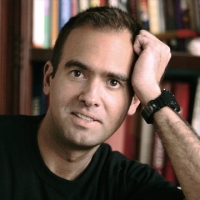
When an evening of David Kirshenbaum’s music was presented at Joe’s Pub in New York City last November, in a star-studded event entitled Places You’ve Never Been Before, TheaterMania.com called him “one of the most prolific and exciting composer/lyricists writing today.” David penned the music and lyrics for the off-Broadway musical Summer of ’42 (book by Hunter Foster), which has just been released as a two-CD set on JAY Records. His new show Party Come Here (book by Daniel Goldfarb) was an invited selection in the 2006 New York Musical Theatre Festival and is having its world premiere production at the Williamstown Theatre Festival this summer. Vanities – A New Musical, his adaptation of the long-running hit play (book by its original writer, Jack Heifner), will be appearing on a New York stage next season after winning the 2006 San Francisco Theatre Critics Circle Awards for Best Musical and Best Score in its first production at TheatreWorks in California.
James Horner

James Roy Horner (born August 14, 1953) is an award winning American composer, orchestrator and conductor of orchestral and film music. He is noted for the integration of choral and electronic elements in many of his film scores, and for frequent use of Celtic musical elements.
In a career that spans over three decades, Horner has composed several of Hollywood's most famous film scores. He is probably best known for his critically acclaimed works on the 1997 film Titanic, which remains today the best selling film soundtrack of all time. Other popular works include Braveheart, Apollo 13, The Mask of Zorro, and The Legend of Zorro.
Horner is a two time Academy Award winner, and has received a total of 11 nominations. He has won numerous other awards, including the Golden Globe Award and the Grammy Award.
In a career that spans over three decades, Horner has composed several of Hollywood's most famous film scores. He is probably best known for his critically acclaimed works on the 1997 film Titanic, which remains today the best selling film soundtrack of all time. Other popular works include Braveheart, Apollo 13, The Mask of Zorro, and The Legend of Zorro.
Horner is a two time Academy Award winner, and has received a total of 11 nominations. He has won numerous other awards, including the Golden Globe Award and the Grammy Award.
Love Story

Love Story is a 1970 romantic drama film written by Erich Segal coordinated with his 1970 best-selling novel. It was directed by Arthur Hiller. The film, well-known as a tear-jerking tragedy, is considered one of the most romantic of all time by the American Film Institute (#9 on the list), and was followed by a sequel, Oliver's Story in 1978. Love Story starred Ali MacGraw and Ryan O'Neal and also marked the film debut of a then-unknown Tommy Lee Jones, who played a minor role in the film.
Ruggero Leoncavallo
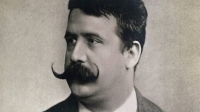
Ruggero Leoncavallo is an opera and operetta composer of the Italian modern era verismo.
Felix Horetzky
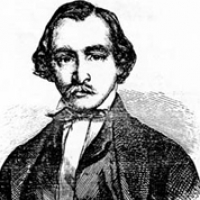
Felix Horetzky was born in Horyszów Ruski in Poland on the 1st ... he went to Vienna to continue his studies under Mauro Giuliani, the famous guitarist. ... Felix Horecki wrote over 100 pieces of music, the directness and classical ...
Bach

Johann Sebastian Bach (31 March 1685 – 28 July 1750) was a German composer and organist whose sacred and secular works for choir, orchestra, and solo instruments drew together the strands of the Baroque period and brought it to its ultimate maturity. Although he introduced no new forms, he enriched the prevailing German style with a robust contrapuntal technique, an unrivalled control of harmonic and motivic organisation in composition for diverse musical forces, and the adaptation of rhythms and textures from abroad, particularly Italy and France.
Revered for their intellectual depth and technical and artistic beauty, Bach's works include the Brandenburg concertos; the Goldberg Variations; the English Suites, French Suites, Partitas, and Well-Tempered Clavier; the Mass in B Minor; the St. Matthew Passion; the St. John Passion; The Musical Offering; The Art of Fugue; the Sonatas and Partitas for violin solo; the Cello Suites; more than 200 surviving cantatas; and a similar number of organ works, including the celebrated Toccata and Fugue in D Minor.
While Bach's fame as an organist was great during his lifetime, he was not particularly well-known as a composer. His adherence to Baroque forms and contrapuntal style was considered "old-fashioned" by his contemporaries, especially late in his career when the musical fashion tended towards Rococo and later Classical styles. A revival of interest and performances of his music began early in the 19th century, and he is now widely considered to be one of the greatest composers in the Western tradition.
Revered for their intellectual depth and technical and artistic beauty, Bach's works include the Brandenburg concertos; the Goldberg Variations; the English Suites, French Suites, Partitas, and Well-Tempered Clavier; the Mass in B Minor; the St. Matthew Passion; the St. John Passion; The Musical Offering; The Art of Fugue; the Sonatas and Partitas for violin solo; the Cello Suites; more than 200 surviving cantatas; and a similar number of organ works, including the celebrated Toccata and Fugue in D Minor.
While Bach's fame as an organist was great during his lifetime, he was not particularly well-known as a composer. His adherence to Baroque forms and contrapuntal style was considered "old-fashioned" by his contemporaries, especially late in his career when the musical fashion tended towards Rococo and later Classical styles. A revival of interest and performances of his music began early in the 19th century, and he is now widely considered to be one of the greatest composers in the Western tradition.
Brian Lowdermilk

Brian Lowdermilk (born December 14, 1982) is an American musical theater composer and lyricistBrian Lowdermilk is a composer and lyricist of musicals. He is also a music director, arranger, vocal coach, and pianist. He is an alumnus of NYU and BMI theatre writing workshop, and CEO of start-up, NewMusicalTheatre.com.
Lowdermilk is best known for his collaborations with Kait Kerrigan. Their works together include shows such as The Bad Years, Republic, Unbound, Flash of Time, The Woman Upstairs, The Unauthorized Autobiography of Samantha Brown (with Zach Altman) and Wrong Number. Lowdermilk and Kerrigan wrote TheatreworksUSA's adaptation of Henry and Mudge, which premiered Off-Broadway in 2006 at the Lucille Lortel Theatre, which is where he made his Off-Broadway debut. In one review of that piece, Lowdermilk and Kerrigan were called "perhaps the most important young writers in musical theatre today."
Lowdermilk is best known for his collaborations with Kait Kerrigan. Their works together include shows such as The Bad Years, Republic, Unbound, Flash of Time, The Woman Upstairs, The Unauthorized Autobiography of Samantha Brown (with Zach Altman) and Wrong Number. Lowdermilk and Kerrigan wrote TheatreworksUSA's adaptation of Henry and Mudge, which premiered Off-Broadway in 2006 at the Lucille Lortel Theatre, which is where he made his Off-Broadway debut. In one review of that piece, Lowdermilk and Kerrigan were called "perhaps the most important young writers in musical theatre today."
Bruno Mars

Peter Gene Hernandez (born October 8, 1985), better known by his stage name Bruno Mars, is an American singer-songwriter and music producer. Raised in Honolulu, Hawaii by a family of musicians, Mars began making music at a young age. After performing in various musical venues in his hometown throughout his childhood, he decided to pursue a musical career. Mars began producing songs for other artists, joining production team The Smeezingtons.
He became recognized as a solo artist after lending his vocals and co-writing the hooks for the songs "Nothin' on You" by B.o.B, and "Billionaire" by Travie McCoy. He also co-wrote the hits "Right Round" by Flo Rida featuring Kesha, "Wavin' Flag" by K'naan, and "Fuck You!" by Cee Lo Green. In October 2010, he released his debut album, Doo-Wops & Hooligans. Anchored by the singles "Just the Way You Are" and "Grenade", the album peaked at number three on the Billboard 200. He has been nominated for seven Grammys at the 53rd Grammy Awards, which will be held on February 13, 2011.
He became recognized as a solo artist after lending his vocals and co-writing the hooks for the songs "Nothin' on You" by B.o.B, and "Billionaire" by Travie McCoy. He also co-wrote the hits "Right Round" by Flo Rida featuring Kesha, "Wavin' Flag" by K'naan, and "Fuck You!" by Cee Lo Green. In October 2010, he released his debut album, Doo-Wops & Hooligans. Anchored by the singles "Just the Way You Are" and "Grenade", the album peaked at number three on the Billboard 200. He has been nominated for seven Grammys at the 53rd Grammy Awards, which will be held on February 13, 2011.
John Barry
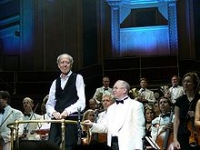
John Barry, OBE (born John Barry Prendergast on 3 November 1933 in York, England) is an English film score composer. He is best known for composing 11 James Bond soundtracks and was hugely influential on the 007 series' distinctive style.
Loreena McKennitt
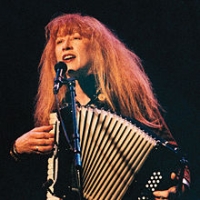
Loreena Isabel Irene McKennitt, CM, OM, (born February 17, 1957) is a Canadian singer, composer, harpist, accordionist and pianist who writes, records and performs world music with Celtic and Middle Eastern themes. McKennitt is known for her refined, warbling soprano vocals. She has sold more than 14 million records worldwide.
James Blunt
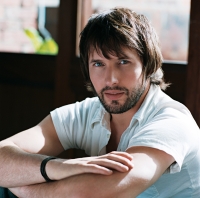
James Blunt (born James Hillier Blount, February 22, 1974) is an English singer-songwriter whose debut album, Back to Bedlam, and single releases — especially the number one hit "You're Beautiful" — brought him to fame in 2005. His style is a mix of pop, rock and folk. Along with vocals, James Blunt performs a variety of instruments, including piano and guitar. He is signed to Linda Perry's independent American label Custard Records. Blunt won two BRIT Awards and two Ivor Novello Awards, and was nominated for five Grammy Awards in 2006. Blunt subsequently released his second album, All The Lost Souls, in 2007; this album was certified gold within its first week of release. The first single from his second album, "1973", was Blunt's first Global Number 1 in October 2007, beating "You're Beautiful" which peaked at Number 2 in the United World Chart.
Prior to embarking on a career in music, Blunt was an officer in the Life Guards, a reconnaissance regiment of the British Army, and served under NATO in Kosovo during the conflict in 1999. While posted to Kosovo, Blunt was introduced to the work of Médecins sans Frontières (MSF) (Doctors Without Borders), a humanitarian aid group best known for its emergency medical care in conflict-torn regions. Since then, Blunt has supported MSF by holding meet-and-greet auctions at many of his concerts.
Blunt's primary residence is now on the Spanish island of Ibiza, where he wrote many of the songs on his second album.
Prior to embarking on a career in music, Blunt was an officer in the Life Guards, a reconnaissance regiment of the British Army, and served under NATO in Kosovo during the conflict in 1999. While posted to Kosovo, Blunt was introduced to the work of Médecins sans Frontières (MSF) (Doctors Without Borders), a humanitarian aid group best known for its emergency medical care in conflict-torn regions. Since then, Blunt has supported MSF by holding meet-and-greet auctions at many of his concerts.
Blunt's primary residence is now on the Spanish island of Ibiza, where he wrote many of the songs on his second album.
Ray Charles

Raymond Charles Robinson (September 23, 1930 â June 10, 2004), known by his stage name Ray Charles, was an American pianist and singer who shaped the sound of rhythm and blues. He brought a soulful sound to country music, pop standards, and a rendition of "America the Beautiful" that Ed Bradley of 60 Minutes called the "definitive version of the song, an American anthem â a classic, just as the man who sung it." Frank Sinatra called him "the only true genius in the business" and in 2004, Rolling Stone Magazine ranked Charles #10 on their list of the 100 Greatest Artists of All Time.
During the late 1960s and into the 1970s, Charles' releases were hit-or-miss, with some big hits and critically acclaimed work. His version of "Georgia On My Mind" was proclaimed the state song of Georgia on April 24, 1979, with Charles performing it on the floor of the state legislature.
He died on June 10, 2004 of hepatocellular carcinoma (liver cancer) at his home in Beverly Hills, California, surrounded by family and friends. His body was interred in the Inglewood Park Cemetery in Inglewood, California. His final album, Genius Loves Company, released two months after his death, consists of duets with various admirers and contemporaries: B.B. King, Van Morrison, Willie Nelson, James Taylor, Gladys Knight, Michael McDonald, Natalie Cole, Elton John, Bonnie Raitt, Diana Krall, Norah Jones, and Johnny Mathis.
During the late 1960s and into the 1970s, Charles' releases were hit-or-miss, with some big hits and critically acclaimed work. His version of "Georgia On My Mind" was proclaimed the state song of Georgia on April 24, 1979, with Charles performing it on the floor of the state legislature.
He died on June 10, 2004 of hepatocellular carcinoma (liver cancer) at his home in Beverly Hills, California, surrounded by family and friends. His body was interred in the Inglewood Park Cemetery in Inglewood, California. His final album, Genius Loves Company, released two months after his death, consists of duets with various admirers and contemporaries: B.B. King, Van Morrison, Willie Nelson, James Taylor, Gladys Knight, Michael McDonald, Natalie Cole, Elton John, Bonnie Raitt, Diana Krall, Norah Jones, and Johnny Mathis.
Jules de Corte

Julius "Jules" de Corte (29 March 1924 – 16 February 1996) was probably one of the most famous blind singer-songwriters from the Netherlands.Julius de Corte was born on 29 March 1924 in Deurne to Peer de Corte and Anna van Eijk. His father had socialist ideals and in 1923 led a strike, the failure of which had a significant impact on the already poor family. At fourteen months, Jules developed a middle ear infection, which eventually led to him becoming blind. He would spend the rest of his childhood in two Catholic institutions for the blind in Grave, which provided him with a good education but no affection. In the last year of the Second World War, allied soldiers were accommodated in the institute and De Corte sang songs for them and played the piano.[1
Mykola Leontovych

Mykola Dmytrovych Leontovych (Ukrainian: Микола Дмитрович Леонтович; sometimes spelt Leontovich; December 13 1877 – 23 January 1921) was a Ukrainian composer, choral conductor, and teacher of international renown. His music was inspired by Mykola Lysenko and the Ukrainian National Music School. Leontovych specialised in a cappella choral music, ranging from original compositions, to church music, to elaborate arrangements of folk music.
Billy Joel

William Martin Joel (born May 9, 1949) is an American pianist and singer-songwriter. He released his first hit song, "Piano Man", in 1973. According to the RIAA, he is the sixth best-selling recording artist in the United States.
Joel had Top 10 hits in the '70s, '80s, and '90s; is a six-time Grammy Award winner, and has sold in excess of 150 million albums worldwide. He was inducted into the Songwriter's Hall of Fame (Class of 1992), the Rock and Roll Hall of Fame (Class of 1999), and the Long Island Music Hall of Fame (Class of 2006). Joel "retired" from recording pop music in 1993 but continued to tour (sometimes with Elton John). In 2001 he subsequently released Fantasies & Delusions, a CD of classical compositions for piano. In 2007 he returned to recording with a single entitled "All My Life," followed by an extensive "World Tour" from 2006-2008, covering many of the major world cities.
Joel had Top 10 hits in the '70s, '80s, and '90s; is a six-time Grammy Award winner, and has sold in excess of 150 million albums worldwide. He was inducted into the Songwriter's Hall of Fame (Class of 1992), the Rock and Roll Hall of Fame (Class of 1999), and the Long Island Music Hall of Fame (Class of 2006). Joel "retired" from recording pop music in 1993 but continued to tour (sometimes with Elton John). In 2001 he subsequently released Fantasies & Delusions, a CD of classical compositions for piano. In 2007 he returned to recording with a single entitled "All My Life," followed by an extensive "World Tour" from 2006-2008, covering many of the major world cities.
Ludovico Einaudi

Ludovico Einaudi (born 23 November 1955) is an Italian contemporary classical music composer and pianist.
Although Einaudi would prefer not to be labeled as any particular type of genre, he is sometimes referred to as Minimalist. This is despite his music not sharing the key musical properties associated with minimalism. This may be due to his music possessing sparse orchestration and simplistic melodies that some may wish to refer to as 'minimalist' despite not belonging to the musical movement of Minimalism.
Einaudi's own words on the matter reflect this viewpoint, with Einaudi referring to Minimalism as "elegance and openness", despite its more formal definition as a musical movement to which he arguably does not belong.
Although Einaudi would prefer not to be labeled as any particular type of genre, he is sometimes referred to as Minimalist. This is despite his music not sharing the key musical properties associated with minimalism. This may be due to his music possessing sparse orchestration and simplistic melodies that some may wish to refer to as 'minimalist' despite not belonging to the musical movement of Minimalism.
Einaudi's own words on the matter reflect this viewpoint, with Einaudi referring to Minimalism as "elegance and openness", despite its more formal definition as a musical movement to which he arguably does not belong.
Sara Bareilles

Sara Beth Bareilles (born December 7, 1979) is an American singer-songwriter and pianist. She achieved mainstream success in 2007 with the hit single "Love Song", which brought her into the number one spot on the Billboard Pop 100 chart.
After graduating from college in 2002, Bareilles performed at local bars and clubs (such as the Hotel Cafe and Genghis Cohen in Los Angeles), building a following, before performing in larger venues. She issued two demos of mostly live tracks in 2003: The First One in April and The Summer Sessions in October. In 2004, she appeared as a singer in a bar in the indie film Girl Play, performing the song "Undertow".
In January 2004, Bareilles released her first studio album, Careful Confessions. She signed a contract with Epic Records' A&R executive Pete Giberga on April 15, 2005. The remainder of the year and early 2006 were spent writing and reworking songs for her upcoming album. Her song, "Gravity," appears briefly in the 2006 independent film Loving Annabelle. She also toured as the opening act in 2006 for Marc Broussard's "Carencro" tour.
In mid-2004 she opened for Rocco DeLuca and the Burden during their inaugural headline tour, supported Guster on their first UK tour and co-headlined a tour with Jon McLaughlin. In 2007, Bareilles toured as the opening act for Aqualung and Mika, and later that year opened for several shows on both Maroon 5 and Paolo Nutini's U.S. tours. She also opened for James Blunt on his U.S. Tour in association with VH1 You Oughta Know.
After graduating from college in 2002, Bareilles performed at local bars and clubs (such as the Hotel Cafe and Genghis Cohen in Los Angeles), building a following, before performing in larger venues. She issued two demos of mostly live tracks in 2003: The First One in April and The Summer Sessions in October. In 2004, she appeared as a singer in a bar in the indie film Girl Play, performing the song "Undertow".
In January 2004, Bareilles released her first studio album, Careful Confessions. She signed a contract with Epic Records' A&R executive Pete Giberga on April 15, 2005. The remainder of the year and early 2006 were spent writing and reworking songs for her upcoming album. Her song, "Gravity," appears briefly in the 2006 independent film Loving Annabelle. She also toured as the opening act in 2006 for Marc Broussard's "Carencro" tour.
In mid-2004 she opened for Rocco DeLuca and the Burden during their inaugural headline tour, supported Guster on their first UK tour and co-headlined a tour with Jon McLaughlin. In 2007, Bareilles toured as the opening act for Aqualung and Mika, and later that year opened for several shows on both Maroon 5 and Paolo Nutini's U.S. tours. She also opened for James Blunt on his U.S. Tour in association with VH1 You Oughta Know.
Olivier Messiaen
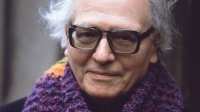
Olivier Eugène Prosper Charles Messiaen was a French composer, organist, and ornithologist, one of the major composers of the 20th century
Eagles

The Eagles are an American rock band that was formed in Los Angeles, California during the early 1970s. With five Number 1 singles and six Number 1 albums, the Eagles were one of the most successful recording artists of the decade. At the end of the 20th century, two of their albums, Eagles: Their Greatest Hits 1971–1975 and Hotel California, ranked among the ten best-selling albums according to the Recording Industry Association of America. The best-selling studio album Hotel California is rated as the thirty-seventh album in the Rolling Stone list "The 500 Greatest Albums of All Time", and the band was ranked number 75 on Rolling Stone's 2004 list of the 100 Greatest Artists of All Time. They are also the best-selling American group ever, with Eagles: Their Greatest Hits 1971–1975 being the best-selling album in the U.S. to date.
The Eagles broke up in 1980, but reunited in 1994 for Hell Freezes Over, a mix of live and new studio tracks. They have toured intermittently since then, and were inducted into the Rock and Roll Hall of Fame in 1998.
In 2007, the Eagles released Long Road out of Eden, their first full studio album in 28 years.
Members:
Glenn Frey
Don Henley
Joe Walsh
Timothy B. Schmit
The Eagles broke up in 1980, but reunited in 1994 for Hell Freezes Over, a mix of live and new studio tracks. They have toured intermittently since then, and were inducted into the Rock and Roll Hall of Fame in 1998.
In 2007, the Eagles released Long Road out of Eden, their first full studio album in 28 years.
Members:
Glenn Frey
Don Henley
Joe Walsh
Timothy B. Schmit
bill mays
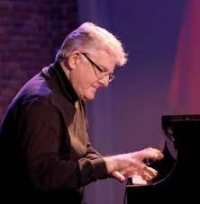
William Allen Mays (born February 5, 1944), known professionally as Bill Mays, is an American jazz pianist from Sacramento, CaliforniaHe came from a musical family and at the age of 15 became interested in jazz at an Earl Hines concert.From 1969 to the early 1980s Mays worked as a studio session musician in Los Angeles. He has been an accompanist to singers Al Jarreau, Peggy Lee, Anita O'Day, Frank Sinatra, Sarah Vaughan and Dionne Warwick, and also worked with artists such as Don Ellis, Mel Lewis, Barry Manilow, Shelly Manne, Bob Mintzer, Red Mitchell, Gerry Mulligan, Art Pepper, Bud Shank, Bobby Shew, Sonny Stitt, Paul Winter, Phil Woods and Frank Zappa. In 1984, he moved to New York City and began to do more work as a bandleader, composer, and arranger.
 Sheet Music Max is a site for those who wants to access popular sheet music easily,
letting them download the sheet music for free for trial purposes.
It's completely free to download and try the listed sheet music, but you have to delete the files after 24 hours of trial.
Don't forget, if you like the piece of music you have just learned playing,
treat the artist with respect, and go buy the original sheet music.
Sheet Music Max is a site for those who wants to access popular sheet music easily,
letting them download the sheet music for free for trial purposes.
It's completely free to download and try the listed sheet music, but you have to delete the files after 24 hours of trial.
Don't forget, if you like the piece of music you have just learned playing,
treat the artist with respect, and go buy the original sheet music.
